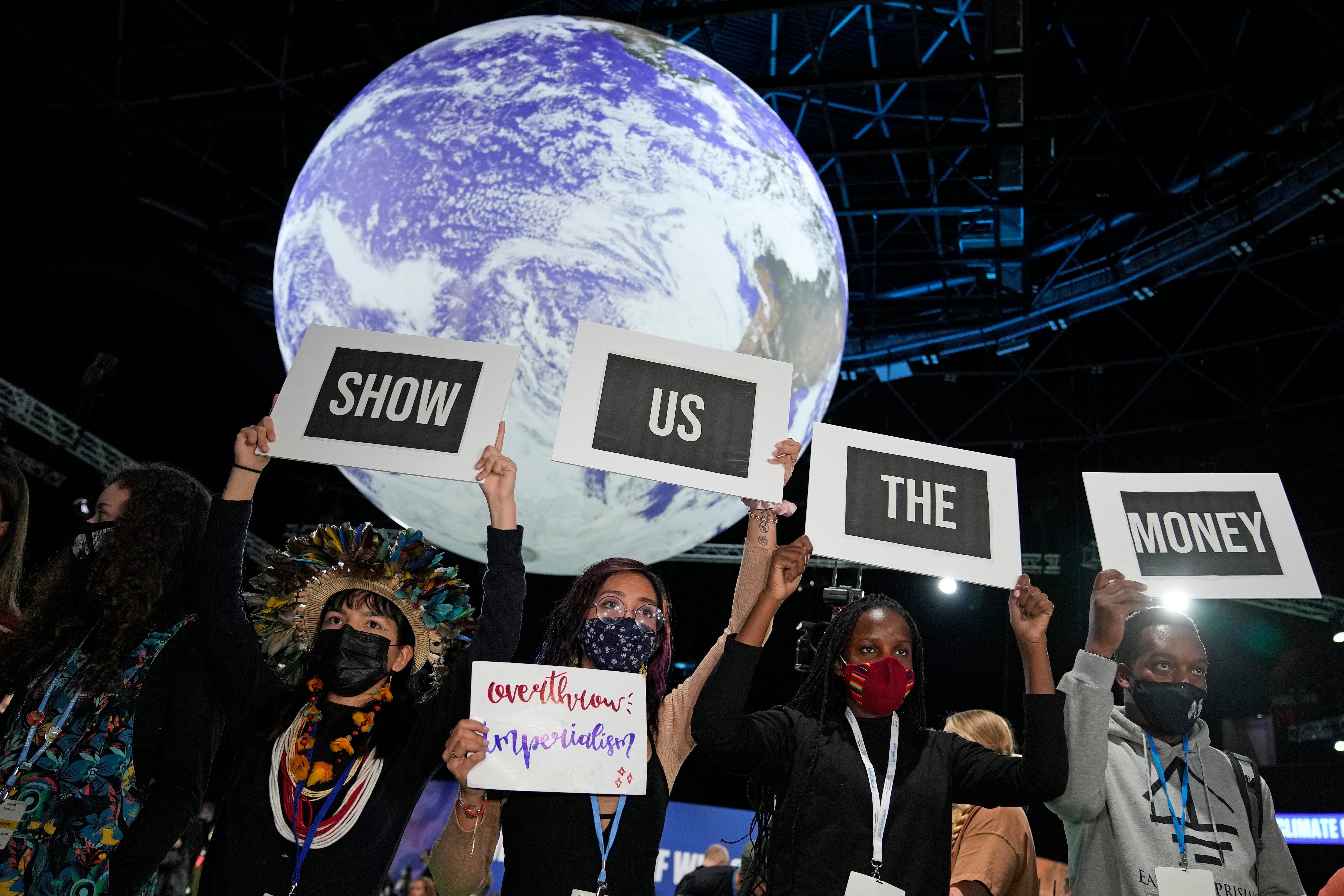The UN must resolve its internal contradictions on climate change
While the UN has made progress in eschewing fossil fuels, many of its activities and associations do not align with its stated goals, writes Donnachadh McCarthy


Why is the decision by Rishi Sunak and the Johnson/Truss cabinet to turbo-charge billions in new North Sea oil and gas investments, linked to the potential destruction of endangered gorilla habitat, the possible obliteration of the largest store of peatland carbon on the planet and literally pushing humanity over the edge of climate destruction?
This is simply because if one of the richest nations on earth refuses to halt huge investments in our own fossil fuels, how can we say to some of the poorest countries that they must not allow such massive investments in their fossil fuels, when their people often lack the minimum basics necessary for human survival?
The Democratic Republic of the Congo is currently proposing the sale of oil and gas licences for huge areas of its tropical rainforest and peatlands, including the precious Virunga National Park, home to the threatened highland gorilla.
In April 2021, The Independent launched the “Stop Fuelling the Climate Crisis” campaign, aimed at ending the banks pouring trillions of dollars into new fossil fuels around the world.
At that stage, at UN level, none of their four key associated organisations involved with seeking to avert climate destruction backed a ban on all new fossil fuel investments. They are the UN’s Office of the Secretary General, the United Nations Environmental Programme (UNEP), the Global Finance Alliance for Net Zero (GFANZ), founded by the UN secretary general’s special envoy on climate finance, and the UNFCCC Conference of the Parties (COP) process.
Since then, the UN secretary general, Antonio Guterres, who had been silent on new oil and gas investments, whilst publicly calling for an end to coal investments, finally in April 2022, in an impassioned plea called for an end to all new fossil fuel investments including oil and gas, calling them in a landmark speech “moral and economic madness”.
He also now says: “New funding for fossil fuel exploration and production infrastructure is delusional. Renewables are the peace plan of the 21st century.”
At a 2021 pre-COP26 press conference, I asked the director of UNEP, Inger Andersen, if she supported a call for COP26 to ban new fossil fuel investments, but she failed to do so. With the crucial Congo decision now imminent, I again asked her office if she supported the UN secretary general’s new position equating such investments with moral and economic madness.
The good news is her spokesperson replied stating “Yes, UNEP’s Executive Director and the organisation support the secretary-general’s positions on fossil fuels.” But GFANZ failed to answer when we inquired the same of them last week.
The UN secretary general’s spokesperson also failed to answer on the record why the secretary general still backs Mark Carney as his personal climate finance envoy, despite the fact that they are not calling for the ban.
Mark Carney, remember, remains a senior executive in an investment corporation with holdings in shale oil, gas and coal.
Many green groups are attacking GFANZ for colluding with the greenwashing of some of the world’s largest banks, including UK banks Barclays and HSBC, who are allowed to be members. The latest GFANZ report again has no plans to require its signatories to halt all new fossil fuel investments, as a criterion for membership.
The UN secretary general’s spokesperson also failed to answer whether they would be pressing for a global ban on all new fossil-fuel investments to be on the agenda for the upcoming COP27 in Egypt.
The UN’s COP26 process is further compromised by being currently headed by Alok Sharma, who shares cabinet responsibility for the UK Tory government instructing the Bank of England to prioritise investments in new UK fossil fuels, following the issuance of its recent Energy Security Strategy.
To keep up to speed with all the latest opinions and comment, sign up to our free weekly Voices Dispatches newsletter by clicking here
Since the UN Paris Climate Agreement, global banks have invested a staggering $4.6 trillion in new fossil fuel investments.
With record temperatures, droughts and wildfires engulfing the globe, the UN secretary-general is absolutely right that this represents moral and economic madness.
It is now time for Guterres to move further and demand that Mark Carney and GFANZ act accordingly or fire Mark Carney as his envoy. The secretary general must also seek to put the ban top of the agenda for this autumn’s COP27 and to demand the resignation of Alok Sharma if he refuses to back such a resolution.
We can also take personal action by moving our own bank accounts away from some of the worst fossil-fuel funding banks and to demand any charities or businesses we are associated with to do likewise.
The time for endless fruitless conferences and declarations is over.
We need the billions being invested in new fossil fuels, to be immediately redirected into renewables and energy-efficiency, if we are to have any chance of a world with thriving guerrilla populations, teeming rainforests and avoiding total climate destruction.






Join our commenting forum
Join thought-provoking conversations, follow other Independent readers and see their replies
Comments